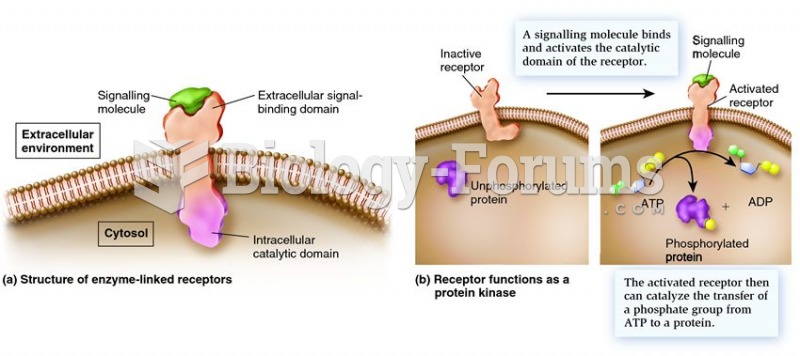|
|
|
Hypertension is a silent killer because it is deadly and has no significant early symptoms. The danger from hypertension is the extra load on the heart, which can lead to hypertensive heart disease and kidney damage. This occurs without any major symptoms until the high blood pressure becomes extreme. Regular blood pressure checks are an important method of catching hypertension before it can kill you.
Although puberty usually occurs in the early teenage years, the world's youngest parents were two Chinese children who had their first baby when they were 8 and 9 years of age.
The immune system needs 9.5 hours of sleep in total darkness to recharge completely.
Bacteria have flourished on the earth for over three billion years. They were the first life forms on the planet.
On average, someone in the United States has a stroke about every 40 seconds. This is about 795,000 people per year.







